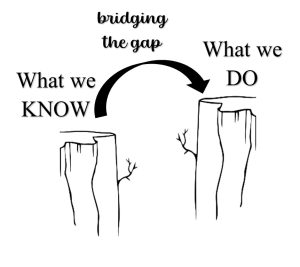What is Implementation Science?
 Implementation science is the study of how to optimize the delivery of evidence-based interventions in practice. Implementation science draws from multi-disciplinary approaches to identify, test, or evaluated delivery of effective health interventions to populations in need with speed, fidelity, and quality.
Implementation science is the study of how to optimize the delivery of evidence-based interventions in practice. Implementation science draws from multi-disciplinary approaches to identify, test, or evaluated delivery of effective health interventions to populations in need with speed, fidelity, and quality.
Advances in HIV prevention and treatment interventions present an opportunity to prevent new infections, avert HIV-related morbidity and mortality, and dramatically alter the HIV/AIDS epidemic. However, the full potential of recent scientific advances in HIV treatment and prevention has yet to be realized. Not all of these known efficacious interventions are scaled-up with high quality. Implementation science attempts to systematically close this gap between what we know works and what we put into practice, all with the aim of improving health outcomes.
The National Institutes of Health defines implementation science as
The study of methods to promote the adoption and integration of evidence-based practices, interventions, and policies into routine health care and public health settings to improve the impact on population health
The University of Washington’s Department of Global Health IS Program defines the field as
A systematic, scientific approach to ask and answer questions about how we get “what works” to people who need it, for as long as they need it, with greater speed, fidelity, efficiency, quality and relevant coverage
Watch: Dr. Kenneth Sherr on What is Implementation Science
Read More
For more information about how to define implementation science and examples of researchers using implementation science across a variety of fields, see:
https://impsciuw.org/implementation-science/learn/implementation-science-overview/
For a heuristic skeleton model for the study of implementation processes, see:
 Implementation Research in Mental Health Services: an Emerging Science with Conceptual, Methodological, and Training challenges (Proctor et al, 2009)
Implementation Research in Mental Health Services: an Emerging Science with Conceptual, Methodological, and Training challenges (Proctor et al, 2009)
For examples of the potential impact of implementation science, see:
 What Can Implementation Science Do for You? Key Success Stories from the Field (Kilbourne et al, 2020)
What Can Implementation Science Do for You? Key Success Stories from the Field (Kilbourne et al, 2020)